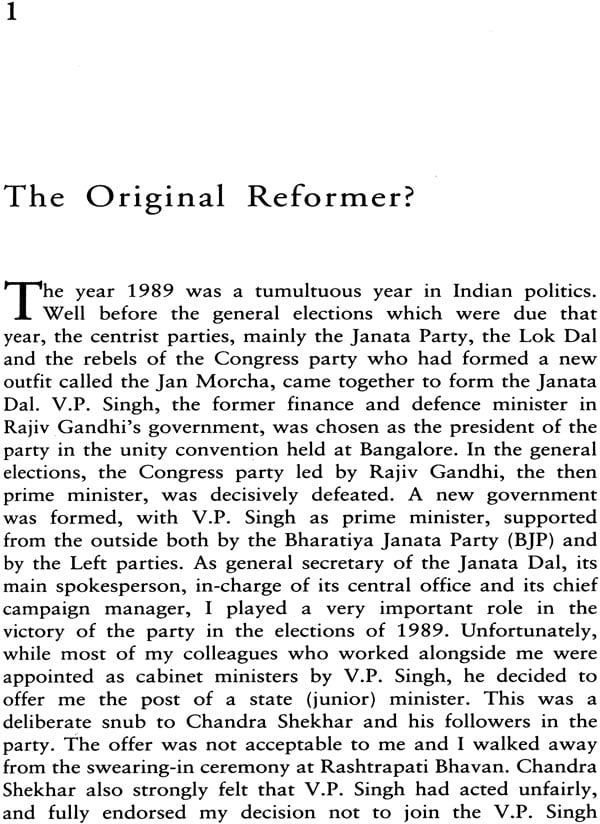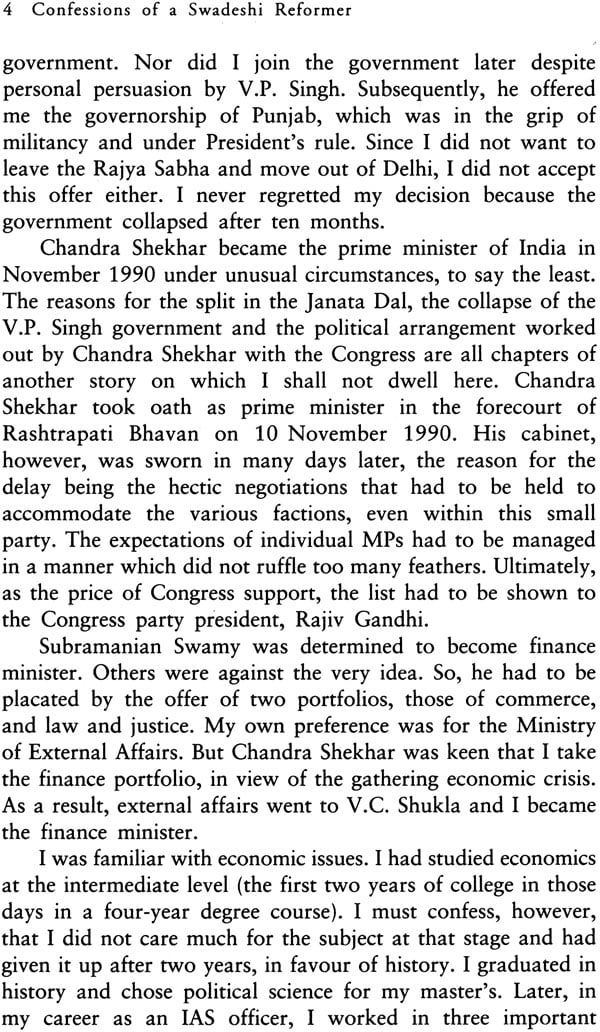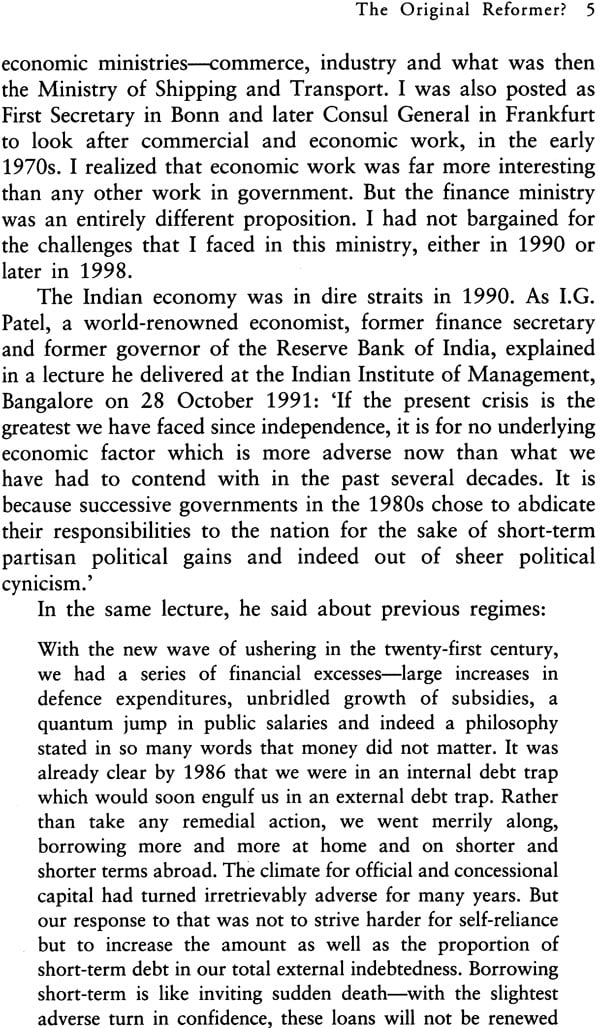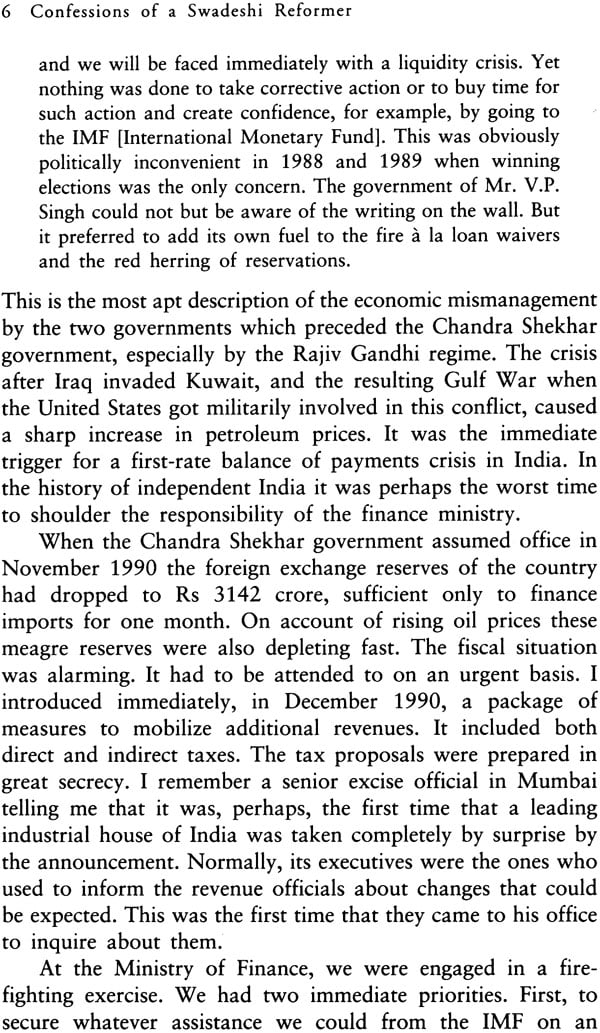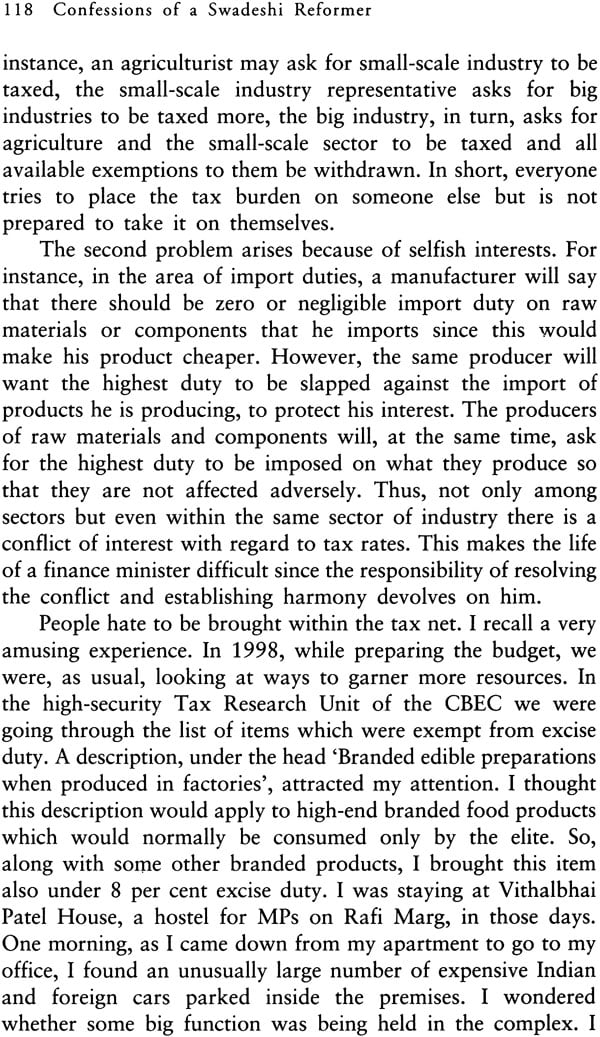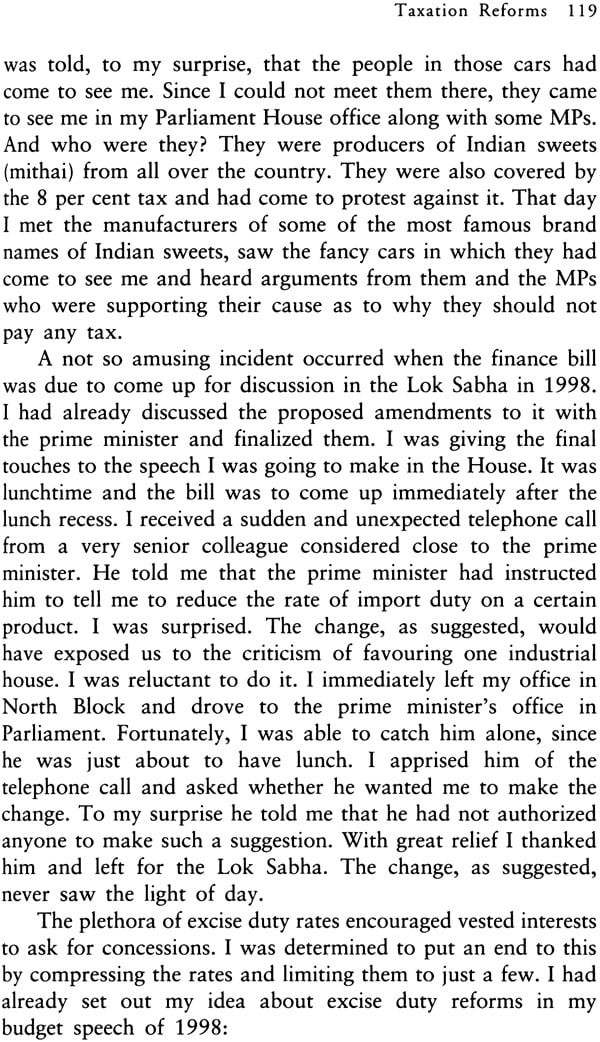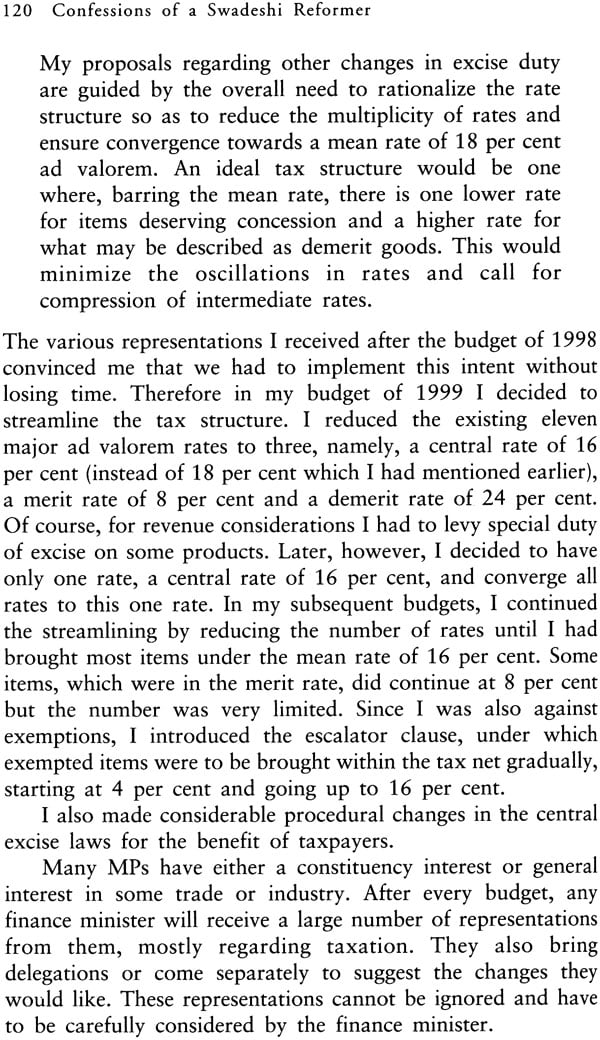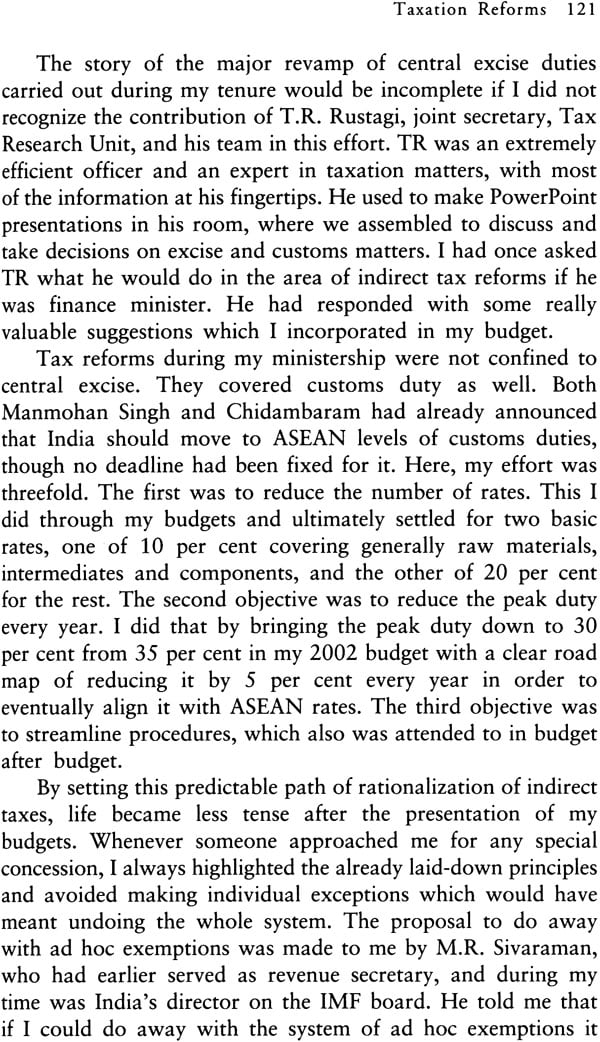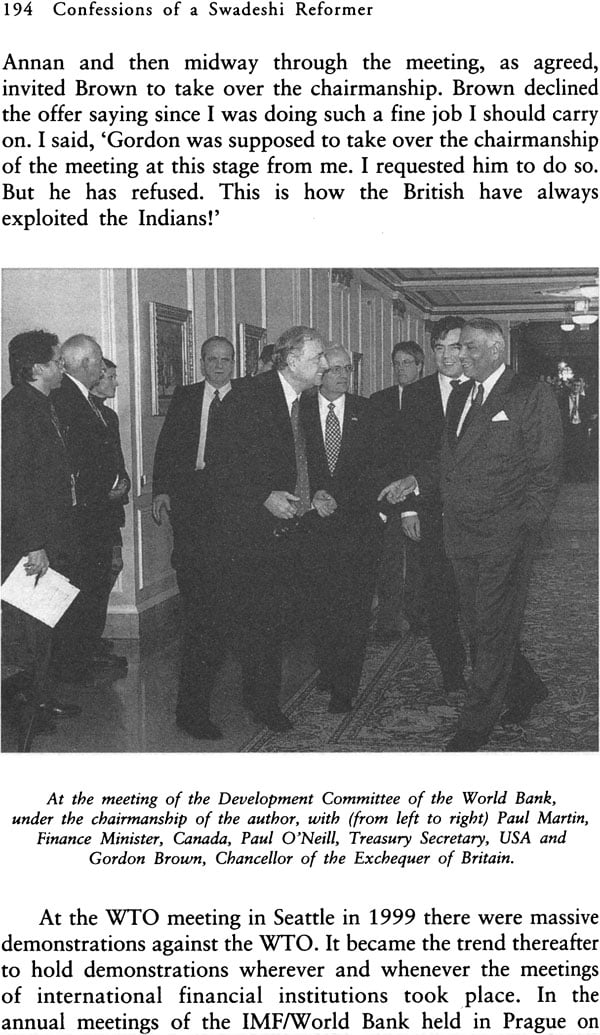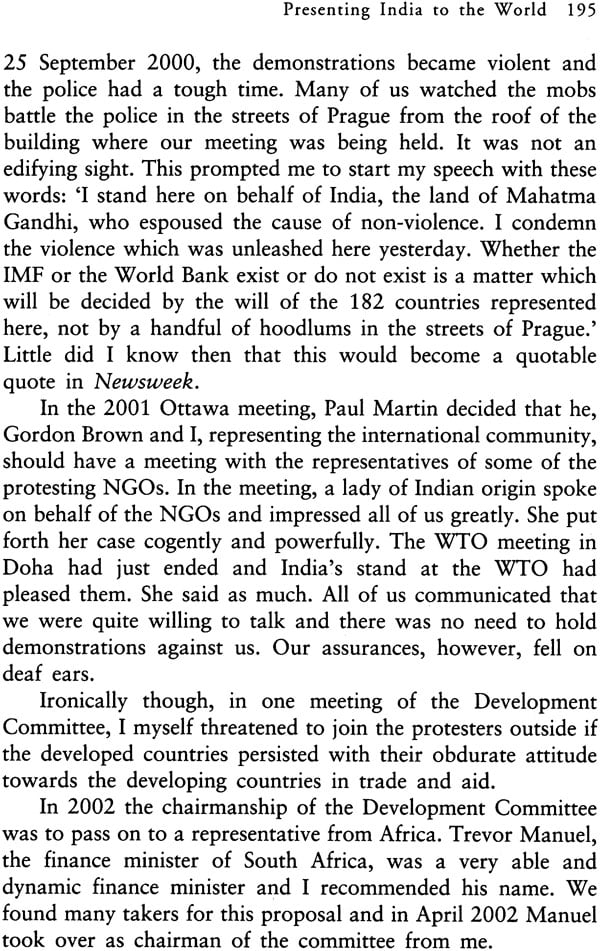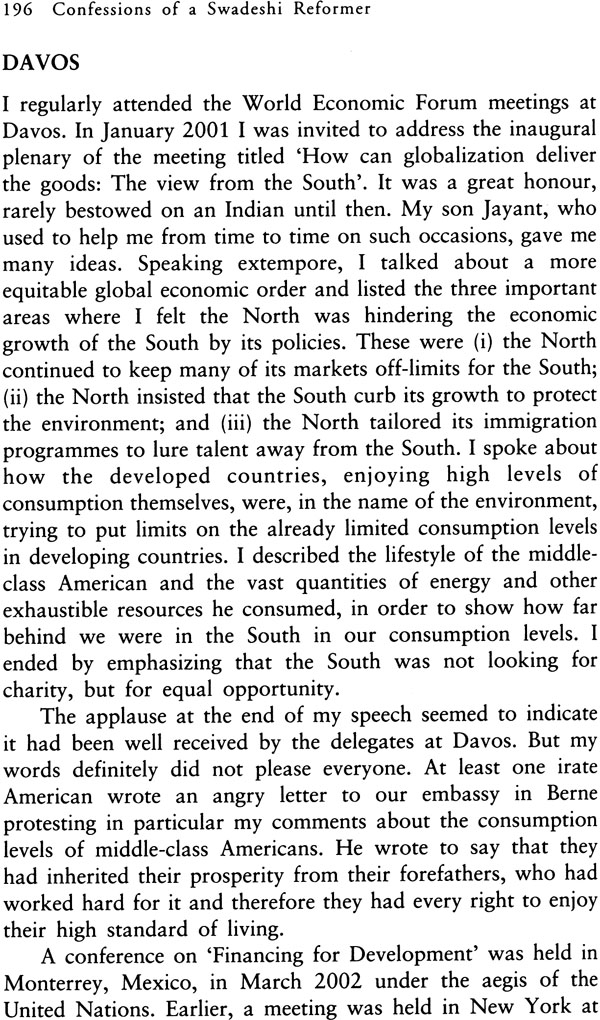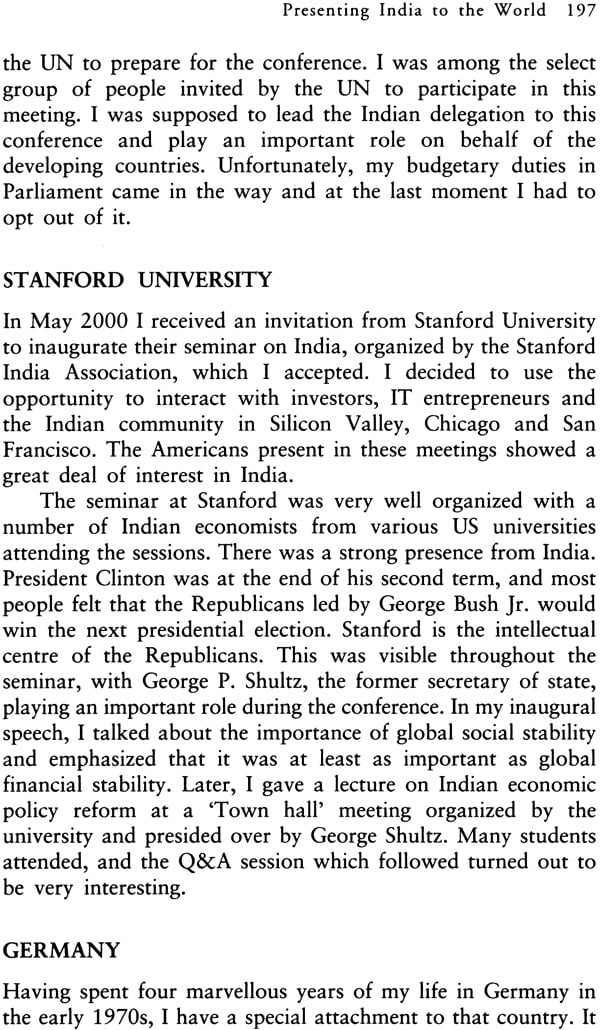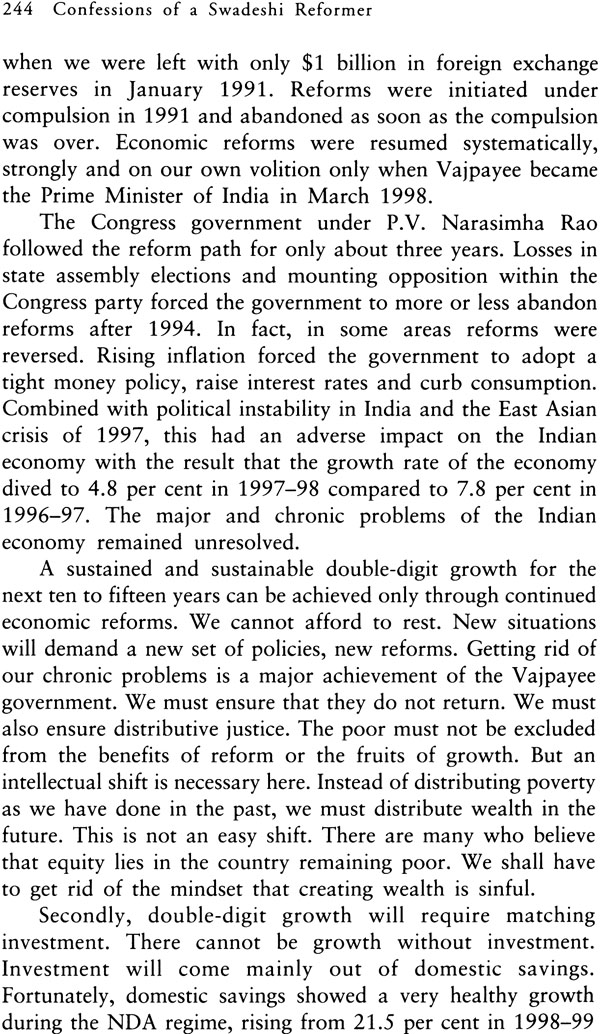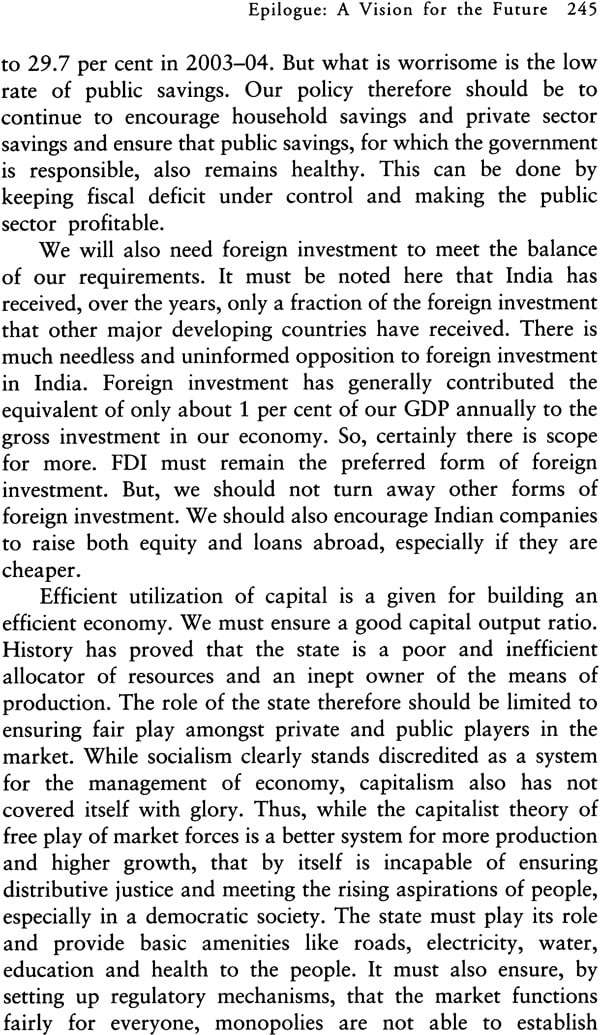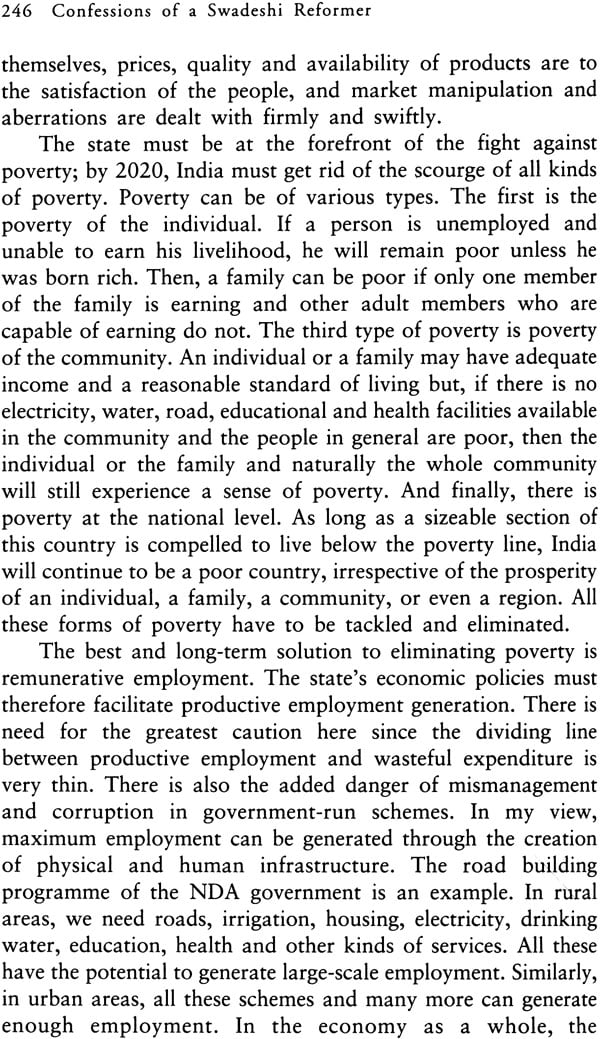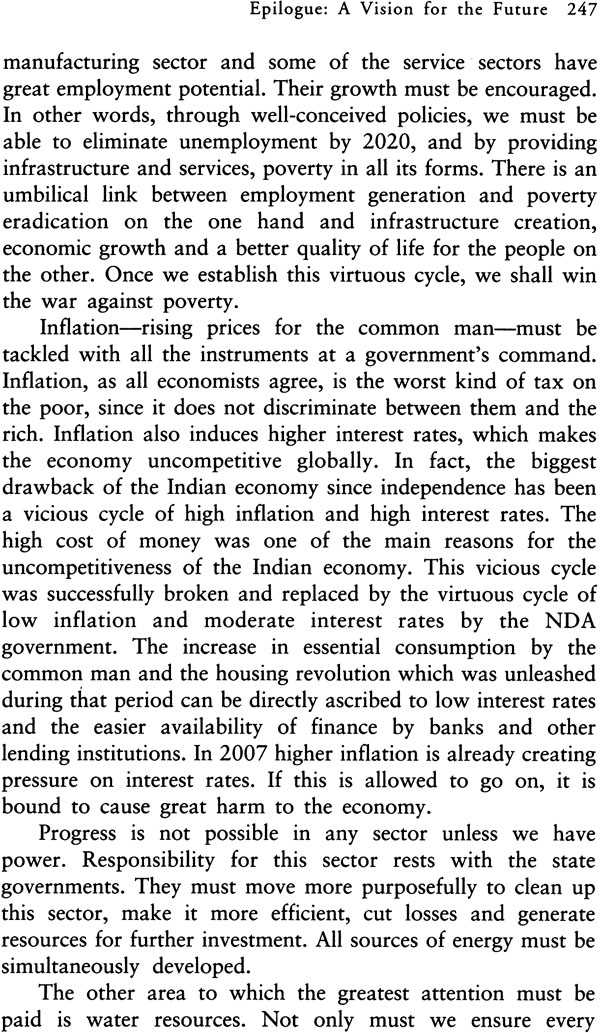
Confessions of a Swadeshi Reformer -My Year as Finance Minister-
Book Specification
| Item Code: | IDJ790 |
| Author: | Yashwant Sinha |
| Publisher: | Penguin Books India Pvt. Ltd. |
| Language: | English |
| Edition: | 2007 |
| ISBN: | 0670999520 |
| Pages: | 261 |
| Cover: | Hardcover |
| Other Details | 8.6" X 5.6" |
| Weight | 370 gm |
Book Description
Back of the Book
'I made a commitment to myself and to the nation, and resolved India must become economically strong. If ever I got the chance again, the most important task before me would be to try and achieve this goal. Seven years later, fate came knocking at my door.'
About the Book
The Chandra Shekhar government fallen. Fresh elections had been called. Yashwant Sinha, finance minister in the caretaker government, was in Patna, contesting for the Lok Sabha against tough opposition, when a senior officer from the finance ministry brought an urgent file for his signature: India needed to mortgage gold to obtain a loan from the Bank of England to tide over a payments crisis - there were just enough foreign exchange reserves to pay for two weeks imports. The crisis was not of their government's making, but it ever got the opportunity, he promised himself, he would make sure that the country never had to face such a crisis again.
The opportunity came in 1998, when Sinha was appointed finance minister in the NDA government led by Vajpayee and was faced with yet another crisis: the nuclear tests in May that year resulted in sanctions and a possible flashpoint. The finance minister's decision to issue the Resurgent India Bond helped tide over it, raising $4.25 billion in two weeks from NRIs, and the country hasn't looked back since.
Yashwant Sinha was finance minister for four years, until 2002, and presented five budgets. In Confessions of a Swadeshi Reformer he gives us the inside story of how the framework for the growth that has taken place subsequently was laid in that time. From the reforms that were initiated to the politics that threatened all initiative, the opposition from within the party as also outside it, which tried to derail the process, Sinha pulls no punches in this candid memoir. Nor does he shy away from discussing the attempts to cut him down to size, including the proposal to split up the Ministry of Finance, and the various controversies of the time - from the two UTI scams to the Flex Industries case and the Mauritius tax treaty case (in which he was alleged to have favoured his daughter-in-law), all of which he faced with equanimity and strength of character. There are, besides, piquant observations on the jostling for position and prime postings that any minister has to face.
In the popular eye, the finance minister is often seen as a taxing machine, a man entrusted, as one British chancellor of the exchequer put it, with a certain amount of misery which is his duty to distribute as fairly as he can. This may perhaps be true, but, as this memoir shows, the finance minister can also bestow a few pleasant surprises.
About the Author
Born in Patna, Yashwant Sinha was educated there, and received his master's in political science in 1958. Subsequently, he taught in Patna University from 1958 to 1960. He joined the Indian Administrative Service in 1960 and during his twenty-four-year service tenure served as sub-divisional magistrate, district magistrate, and in various positions in the Bihar government, the Ministry of Commerce, Ministry of Industry and Ministry of Surface Transport of the central government. He has also worked as Consul General of India in Frankfurt, Germany.
Yashwant Sinha took voluntary retirement from the IAS in 1984 and joined active politics as a member of the Janata Party. He was elected to the Rajya Sabha in 1988. His first tenure as Minister of Finance, from November 1990 to June 1991, was in the Chandra Shekhar cabinet. As Lok Sabha member from Hazaribagh, he again held the same portfolio from March 1998 to July 2002 in the Vajpayee government, and then served as external affairs minister, a position he held till the elections of May 2004.
Mr. Sinha is widely traveled and has a range of interests including reading, gardening and meeting people. He lives in New Delhi with his wife Nilima. They have three children, two sons and a daughter.
| Acknowledgements | ix | |
| Prologue | xi | |
| Part 1: The Finance Minister Presents | ||
| 1. | The Original Reformer? | 3 |
| 2. | A Chance Encounter | 25 |
| 3. | 'Who Will Prepare The Budget?' | 32 |
| 4. | A Dream Budget Gone Sour | 37 |
| 5. | Preparing and Presenting A Budget | 41 |
| 6. | The Nuclear Tests | 52 |
| 7. | A Road Map for the Future | 55 |
| 8. | The Resurgent India Bond and the India Millennium Deposit | 64 |
| 9. | Lessons Learnt | 69 |
| 10. | The General Election of 1999 | 73 |
| 11. | The Path to Sustained Growth | 77 |
| 12. | Continuing Reforms | 83 |
| 13. | The Misfortune of Terror | 88 |
| 14. | In August Company | 93 |
| 15. | Strategy Over The Five Budgets | 99 |
| Part 2: Policy and Reforms | ||
| 16. | Insurance sector Reforms | 105 |
| 17. | Agricultural Reforms | 110 |
| 18. | Taxation Reforms | 117 |
| 19. | Banking Sector Reforms | 133 |
| 20. | Electricity Sector Reforms | 139 |
| 21. | Controlling Fiscal Deficit | 143 |
| 22. | Gross Budgetary Support | 152 |
| 23. | Disinvestment and Privatization | 156 |
| 24. | Other Reforms | 160 |
| Part 3: Confessions of a Swadeshi Reformer | ||
| 25. | Swadeshi and Globalization | 183 |
| 26. | Presenting India to the World | 188 |
| 27. | Facing up to Controversy | 204 |
| 28. | Farewell to North Block | 225 |
| 29. | The Life of a Finance Minister | 231 |
| Epilogue: A Vision for the Future | 241 | |
| Index | 253 |
